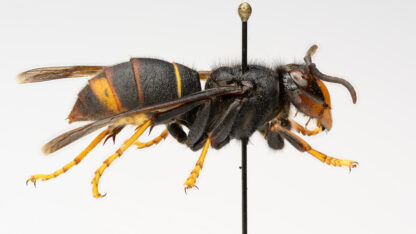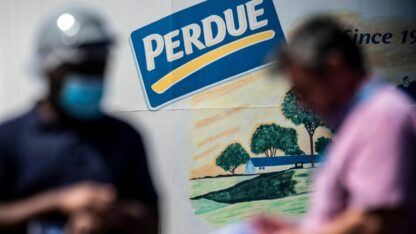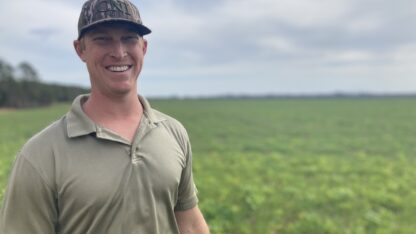This coverage is made possible through a partnership with WABE and Grist, a nonprofit, independent media organization dedicated to telling stories of climate solutions and a just future.
Fall means pecan season in Georgia, but this year’s crop took a hit from Hurricane Idalia in late August. It’s just the latest disruption for the state’s produce after freezes devastated peaches and blueberries and threatened citrus in the last year. Some farmers and policymakers are trying to help growers prepare for a more volatile climate in the future.
Some South Georgia pecan growers lost whole orchards to Hurricane Idalia’s strong winds. UGA horticulturalist Lenny Wells said the storm likely took around 10 to 15 million pounds from this year’s crop. That’s just a fraction of the total state crop, which surpassed 88 million pounds in 2021 and 125 million last year, but the impact will be long-lasting.
“Normally what we see with storms like this is that we have some injury that shows up later on in the form of, sometimes quality is affected,” Wells said. “So we don’t know the extent of that yet.”
Farmers will also have to replace the lost trees. It costs around $20 each for the trees themselves, he said, plus the cost of labor to replant the trees, the cost of irrigation, and other expenses. It can take six to ten years for those new trees to produce nuts and turn a profit.









